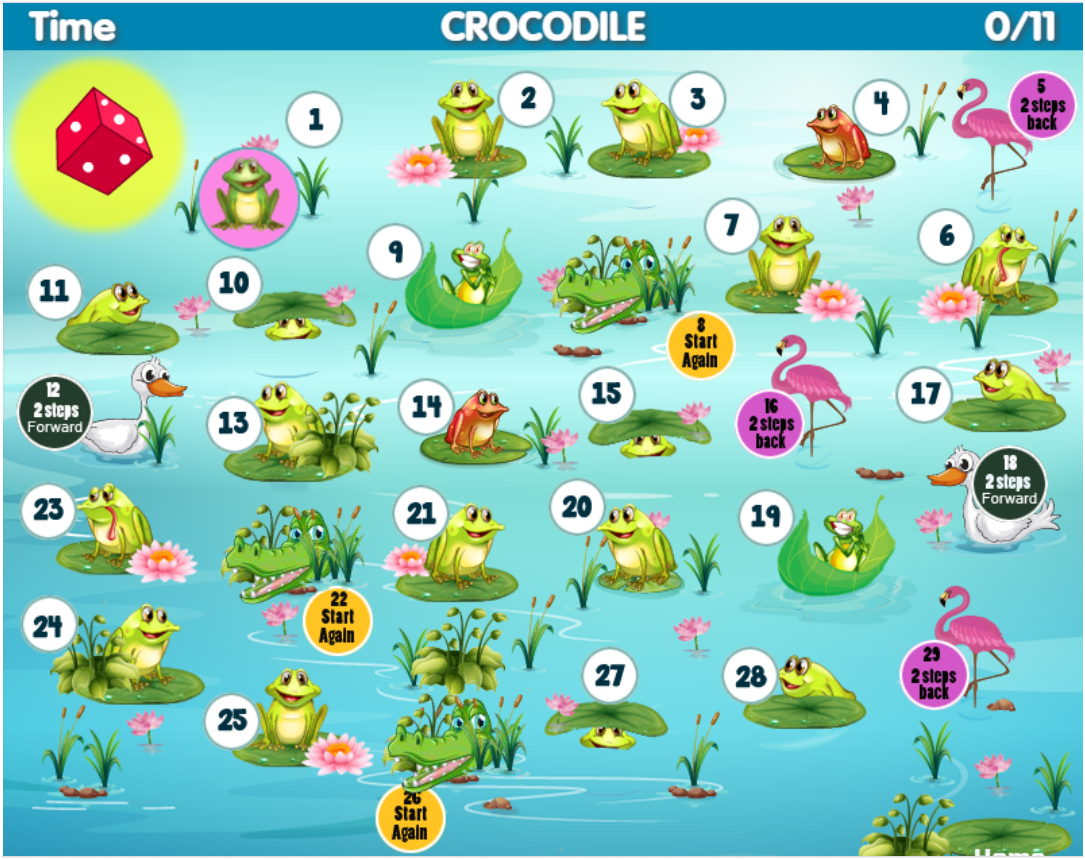Math Games to Boost Creative Thinking
Multiplication Games | Addition Games| Subtraction Games | Telling Time Games | Fraction Games |
Math is not confined to formulas and memorization. It also equips learners with the tools and processes to think outside the box, observing the world through various angles and approaching problems with ingenuity.
Parents and instructors alike can use math games to boost creative thinking in students. Take care to choose games that are appropriate to a child’s age and year level, and note their interests and favourite game types, to maximize their engagement with such activities.
In this article, we’ve distilled a few of the best creative math games we’ve found for your students into four main categories.
-
Brain-teasing puzzles
A tried-and-tested way for many parents and instructors to get their learners involved in math is through providing them with fun, brain-teasing math or logic puzzles.
Sudoku, for instance, is a classic brain-teaser that kids can exercise their brains with. A single puzzle can keep a child feeling intellectually stimulated for fifteen minutes. You can find plenty of Sudoku puzzle books in bookstores, or download free Sudoku apps online!
For a little more variety, there’s plenty of math and logic-themed puzzles for your students to try. One of the more popular Sudoku alternatives is Kakuro, which can resemble a number-based form of a crossword puzzle.
If you want a fast-paced game that trains a child to make decisions on the fly, Minesweeper with a timer is also surprisingly fun.
Some other puzzle types that have been around for centuries include the Arabic Magic Square, and Tangrams – a set of seven geometric shapes that kids can rearrange in several ways to form different figures.
You could also look around bookstores and online for math riddles – a riddle can act as a great icebreaker for your students before a class, or as some tricky homework for them to reflect on.
-
Problem-solving roleplay
If you’d like kids to truly exercise their creative capacity, you might consider roleplaying. It’s an opportunity for children to immerse themselves, act out different characters and use ingenuity and teamwork to navigate through various challenges. With the proper set-up, even older kids can be engaged in this activity type. (check out our Jungle board games)
A role-play activity is perfect for a small student group. Be creative with the setting. Younger kids, for instance, might be more interested in fantastical scenarios.
Before a game, prepare a few story details and decide how you wish to incorporate their math lessons.
You can write about a giant, evil dragon and its minions attacking the school. Each minion can only be defeated by finding, say, the prime factors or square roots of the number on their chest. The player who gets the answer right first gets gold or experience points.
Make a few more of these challenges, and create an extra-tough, multi-step problem to beat the dragon.
Seat them around a large table with some paper and pens and have them draw their own character. You will act as a Game Master, or GM, telling the story, setting up the challenges they encounter, judging rewards, and entertaining your students. Combine your imagination – and humor – together to make a lively and engaging fictional world.
An immersive RP session like this can help kids call upon and apply their math knowledge, and can be a great way to spend an afternoon.
-
Online math games
Pirate Games | Crocodile Games | Asteroid Games | Basketball Games | Jungle Board Games & More
The internet is packed with all sorts of educational math games, but kids can sense if these games are actually fun or if they’re only a ham-fisted attempt to trick them into doing some math exercises.
You can’t totally blame kids – giving them any random math game without considering their interests can be counter-productive to their engagement on the subject.
Take time to know what your students like – some are fascinated by dinosaurs and zombies, while others prefer exploring the void of space or our planet’s untamed wilderness. For larger classes, you can pass a piece of paper around the room and let everybody write their likes and dislikes on a list.
Once you know what each of your students want to see in a math game, you can tailor the games to their likes.
Some of the best online math games for creative thinking can come in multiple designs while revolving around the same lesson; your kids can practice multiplication or fractions through different settings, such as a zombie apocalypse, meteor shower, or jungle adventure.
-
Designing board games
If you’re looking for ideas for your students’ final project in math class, they might enjoy the task of constructing their very own board game.
The very process of conceptualizing a board game, its setting, mechanics, game design and visual appeal takes serious creativity, challenging kids to hone their imaginations to a sharp edge to produce an amazing game.
In addition, the physical construction of the game itself can teach kids a thing or two about math skills such as geometry, measuring quantities, and data organization, as well as the virtues of teamwork and collaboration.
You can instruct them to tie in the year’s math lessons into the game, and set aside time to demonstrate a round of playing the game to the class.

